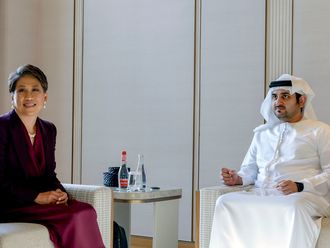With franchising expected to grow at 25 per cent annually in the Middle East, we are on the threshold of a new dawn. Franchising has long been recognised as a job creation and economic growth enabler. Whereas it has traditionally been a channel for bringing global brands to the region, today, there is an emerging trend of homegrown companies expanding regionally — and globally — through franchising.
This trend is led not only by established groups but SMEs, which historically have been credited with creating and sustaining a middle-class throughout the developed world.
Throughout many developing economies, franchising has been the primary vehicle that has successfully taken SMEs and grown them into national chains and international brands.
This was the primary focus of the discussion during the ‘Enriching the Middle East’s Economic Future’ event organised by Qatar’s Ministry of Foreign Affairs on the role of franchising to help create a robust regional middle-class.
In the Middle East, the growth rate of homegrown business franchising is still far below its potential. According to the International Finance Corporation the primary reason is that many SMEs cannot access the financing they need.
One sure way for them to access capital is through franchising. In fact, the shortage of available capital is the principal reason manufacturers, retailers and services companies often give for choosing franchising.
When a franchise system is well-designed, developed and supported, the cost for a business owner to establish a franchise system is usually significantly less than the cost of opening up an additional unit.
There are still barriers that need to be addressed if we want to see further growth in franchising in the region. The principal reason is the lack of a critical mass of current indigenous “franchisable” businesses being offered.
Another reason is that in some regions, ownership tends to be associated with a single or family-owned business, resulting in a number of established businesses never choosing to grow larger than can be operated by the founders.
In addition, we have found that entrepreneurship is first and foremost a mindset that needs to be organically developed and nurtured. Leading institutions such as Dubai SME, Khalifa Fund and the Dubai School of Government have been making significant contributions towards this, with their strong focus on enabling policies and initiatives to encourage entrepreneurship as well as private organizations such as Potential, Wamda and Injaz.
Franchising excellence starts with establishing sound franchising systems based on a well-structured franchise methodology. In fact, contrary to popular belief, franchising is not just about a product or a service.
When done well, franchising has an extraordinarily low rate of failure. And with its proven value to create jobs and support economic growth, franchising needs to be encouraged.
The more we communicate successful franchising stories of homegrown brands in the Middle East, the more we do our part to encourage others.
For more than 50 years the International Franchise Association and the regional franchise associations in the Middle East have shared time and again how franchising is able to rapidly grow the franchisor’s business at lower cost and less time, minimising the capital investment and risk of the franchisor and franchisee.
We hope that celebrating the success of franchised local businesses triggers a positive chain reaction, where the close collaboration of entrepreneurs, SMEs, established leading local companies, franchisees and trusted financial consultants, all supported by the government and the private sector, will create a flourishing franchising eco-system in the Middle East.
— The writer is the founder and managing director of MSA Worldwide.












